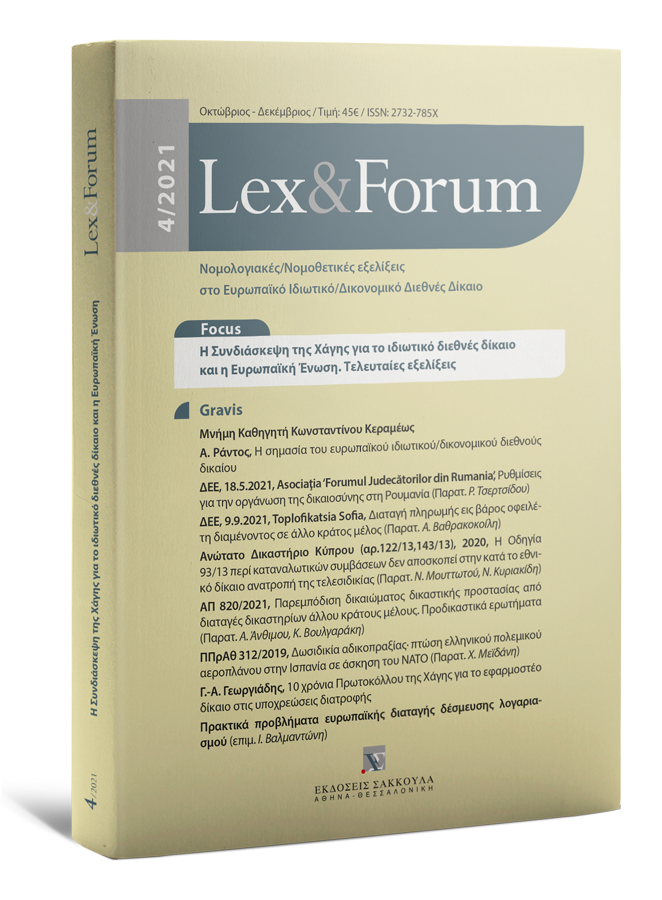Out Now: Scraback on the Principle of Concentration of Conflicts in the Brussels Ia Regulation
Bianca Scraback has recently published an innovative book on international jurisdiction in contract and tort under the Brussels Ia Regulation, in which she develops a comprehensive solution for cases in which Article 7(1) and 7(2) vest special jurisdiction in the courts of more than one Member State.
 The different solutions adopted by the CJEU to mitigate the problems resulting from a multiplicity of places of ‘contract performance’ or ‘harmful events’ are well-known. They range from the infamous ‘mosaic approach’ developed in Case C-68/93 Shevill (most recently confirmed in Case C-251/20 Gtflix tv) to a variety of centre-of-gravity approaches (see, eg, Cases C-386/05 Color Drack, C-204/08 Rehder, C-19/09 Wood Floor, and C-352/13 CDC Hydrogen Peroxide) to the unavailability of special jurisdiction (Case C-256/00 Besix). Still, the Court regularly accepts the coexistence of multiple fora with special jurisdiction.
The different solutions adopted by the CJEU to mitigate the problems resulting from a multiplicity of places of ‘contract performance’ or ‘harmful events’ are well-known. They range from the infamous ‘mosaic approach’ developed in Case C-68/93 Shevill (most recently confirmed in Case C-251/20 Gtflix tv) to a variety of centre-of-gravity approaches (see, eg, Cases C-386/05 Color Drack, C-204/08 Rehder, C-19/09 Wood Floor, and C-352/13 CDC Hydrogen Peroxide) to the unavailability of special jurisdiction (Case C-256/00 Besix). Still, the Court regularly accepts the coexistence of multiple fora with special jurisdiction.
Now, Scraback argues that this coexistence often violates the ‘principle of concentration of conflicts’, which she derives from Articles 5(2), 8, 21(1), 24, and 29–34 Brussels Ia, as well as the principles of legal certainty and proximity. After a detailed review of the existing case law, she comes to the conclusion that each of the approaches that have so far been applied by the CJEU also conflicts with core principles of the Regulation and fails to provide a unitary solution for both contract and tort cases.
Against this backdrop, Scraback proposes an approach of ‘limited choices’ for the claimant: as a starting point, based on the wording of the Regulation, any claimant must be free to select any forum that fulfils the requirements of Articles 7(1) or 7(2), without any limitation of its jurisdiction (thus rejecting the mosaic approach); yet, to protect the legitimate interests of the defendant, certain fora must be excluded based on the remote character of their connection to the dispute. More specifically, Scraback proposes to exclude all fora that can be considered subsidiary both in comparison to the overall tort or contractual obligation and in comparison to other available fora – which appears to require some kind of reverse centre-of-gravity analysis not dissimilar from a forum non conveniens test. While providing a serious alternative to the CJEU’s notoriously unconvincing approach to online torts, it can certainly be debated if this approach provides a better alternative to the answers found by the CJEU in all case. Still, Scraback’s ‘principle of concentration of conflicts’ offers an interesting new vantage point and useful frame of reference to think about a wide range of seemingly unrelated scenarios.



